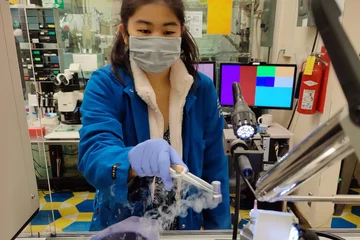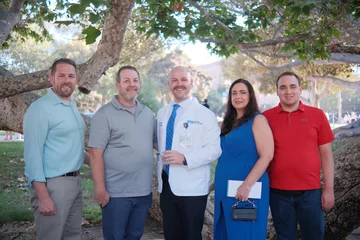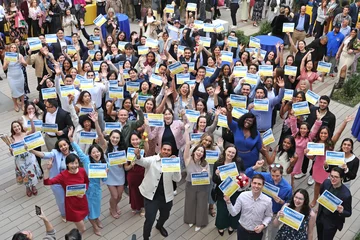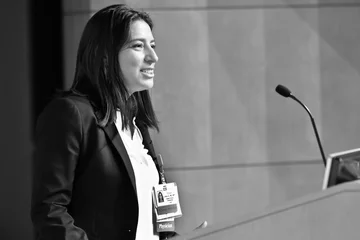Becoming a Doctor: Gustavo Castellanos
Student Spotlight
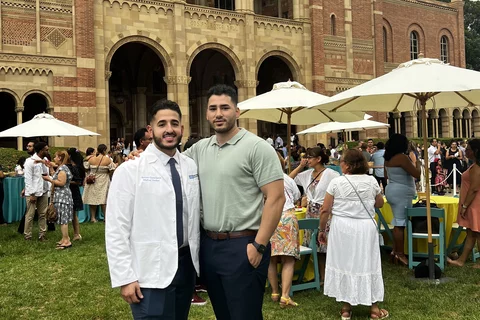
How to Get Into UCLA Medical School
Gustavo Castellanos was first called to provide much-needed medical care at the age of 10, when his mother became sick. She didn’t have medical insurance at the time, so Castellanos and his brother joined their father in Northern California’s agricultural fields to help pay for her treatment.
“It was a concerted effort to have enough money to pay for medicines and to keep our household afloat,” he recalls.
In addition to helping fund his mother’s care, Castellanos ensured she benefited as much as possible by translating between English and Spanish during her appointments. Castellanos’s parents had immigrated from Mexico, and English was the entire family’s second language. The extensive reading and studying that had helped Castellanos find his place in American classrooms also helped him overcome language barriers to his mother’s care.
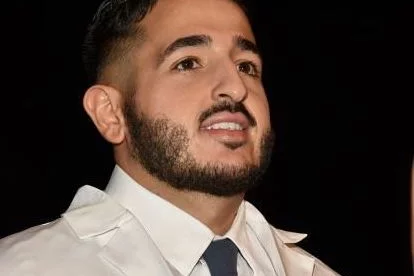
“Through those doctor’s visits, I was able to satisfy my curiosity about science and medicine. I was never shy about speaking up or asking somebody with a white coat a question.”
Translating benefited his mother’s health and also launched Castellanos’s unofficial medical education.
“My mother had good doctors who would explain what they were doing and why. To me, it seemed like a super power, to be able to affect somebody's health in a positive way with just the knowledge in your head and a few tools or some medicines.”
Castellanos knew then, if he really could be anything, that he wanted to be a doctor.
A Long Path to Medical School
Castellanos’s dream of becoming a doctor never left him, even as life’s challenges pushed it farther and farther into the distant future. His mother’s illness required long-term care, so he continued working in the fields through high school to help support her.
He always wanted to be in school and to learn, but he often missed classes so he could work. After graduating high school, Castellanos welcomed a son, and caring for him became the top priority.
“I was doing anything I could to earn money.”
He worked as a mechanic. He learned how to weld aluminum. He installed roofs and laid concrete. He also worked at a cheese factory.
The factory offered Castellanos a full-time job. Accepting it meant security, being able to pay the bills, but also committing to a schedule that wouldn’t accommodate college.
He consulted with co-workers who’d become good friends.
“Everybody but one person—Scotty—told me I should take the job. He said that if I had the opportunity to go back to school that I should.”
Castellanos likens the moment to flipping a coin and realizing, as it spins through the air, that you already know the answer you want.
“All I needed was Scotty to tell me to quit,” he says. “My son was growing up and seeing me as a role model. I wanted him to emulate the version of myself I’d always dreamed to be.”
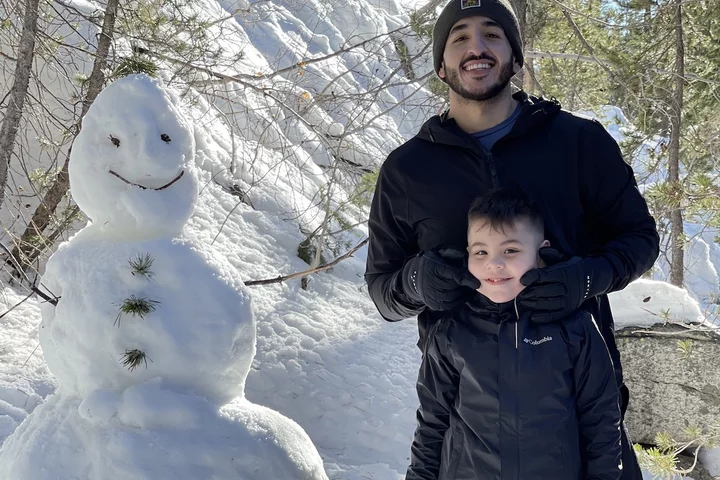
Applying to Medical School During the COVID-19 Pandemic
Castellanos resolved to complete his undergraduate education at the University of California, Davis, but life hadn’t finished testing his resolve. He soon realized working as an Emergency Medical Technician (EMT) didn’t generate enough income to pay for school and also provide for his son.
“So I got my commercial license and started driving trucks throughout Northern California.”
Between parenting, school, and driving, Castellanos still managed to participate in the extracurricular activities he needed on medical school applications. When the COVID-19 pandemic left him out of work, he knew it was time to apply.
Getting accepted into the David Geffen School of Medicine at UCLA (DGSOM) was an unforgettable moment, one that filled him with an incredible sense of pride, validation, and accomplishment. Prior to his acceptance, he had to field constant questions from his friends and family about why he was never around.
“Now they understand. Now they can see this is where that sacrifice led me and they’re proud of all the work I did.”
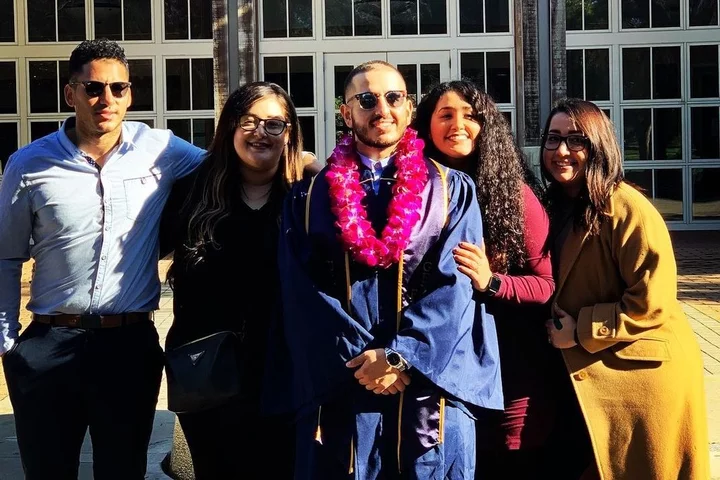
(Surviving) a Day in the Life of a Med Student and Parent
Meeting medical school’s demands on top of parenting puts Castellanos under compounded pressure.
Life doesn’t stop for school, and school also doesn’t stop for life. He adjusts his schedule in order to be a supportive and present parent. When priorities shift, he breaks his studying time into manageable chunks and wakes up early to make sure he has some morning time with his son.
“What keeps me going is knowing how far I’ve come, and knowing I’ve been even busier before. I’ve gotten less sleep before. That reassures me that all the difficulties can be overcome.”
He’s also driven by a strong sense of purpose, centered around his son.
“Of course it’s difficult to be a medical student and a father, but I also think it’s valuable and rewarding,” he says. “He keeps me pushing toward my goals. I want to show him that no matter the circumstance, if you try hard enough and do what you feel is right, then you can achieve your goals.”
None of med-school’s challenges have made Castellanos forget that being at UCLA is a dream come true.
“I thought it was out of reach for someone from my background with my life experiences,” he says. “It feels monumental to even have the privilege of struggling through this.”

Being a Visible Latino Doctor and Role Model
Castellanos hasn’t yet decided what medical specialty he wants to pursue, but he knows what values will drive him in any practice.
“It’s important to me to be a present, visible Latino doctor—a good role model for my son, my family, and everyone in my community.”
Castellanos strives to counsel patients with compassion, humility, and consideration for their unique circumstances, an approach he adopted while working at a free health clinic.
“A lot of times, some populations, cultures, and lifestyles aren't reflected in medical literature and aren’t amenable to a general approach,” he explains. “Even as scientists and practitioners, we have to center the human experience in our work.”
For Castellanos, considering the future always prompts him to reflect on the past.
“My grandfather and my father were migrant farm workers. I was a farm worker and now I’m going to be a doctor—a doctor from UCLA no less. That's something I will be proud of forever.”
Med School Advice - Quick Tips
- When opportunities to learn present themselves, take them. It might be difficult, but it will also be worth it.
- With hard work and patience, it is possible for people of all backgrounds and with all experiences to go to medical school.
- When things get hard, don’t focus on the struggle, but instead remember what you’re struggling for.
Med School Advice - FAQ
What Is a First Generation College Student?
A first-generation college student is the first in their family to attend college. Read more about first-generation medical students at the DGSOM.
According to the most recent report available from the Association of American Medical Colleges (AAMC):
- The average cost of attending one year of private medical school in the United States is $39,905.
- The average cost of attending one year of public medical school in the United States is $62,570.
See the costs associated with attending medical school at the DGSOM.
How Long Is Medical School?
Many medical schools offer a four-year medical education curriculum. After students complete this core curriculum, they spend several (3-7) more years in residency training for their chosen specialty.
How Hard Is Medical School?
Medical school is hard because being an outstanding physician or physician scientist is hard. Most medical schools design rigorous curriculums that prepare medical students for the range of challenges they’ll encounter every day as practicing physicians.
